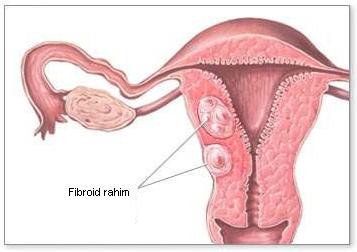People have the natural tendency to shrug things off especially when it comes to their health. Those sudden bouts of dizziness will just be attributed to lack of sleep. That bloated feeling will just be chalked up to the heavy lunch eaten.
Symptoms are the body’s way of telling us that something is wrong. However, if we don’t know how to read them or if we consistently push them aside there is a big chance that a simple condition can escalate into something worse just because we turned a deaf ear to the warning signs. By the time we address the issue it has become a little more complicated to treat when we could have nipped it in the bud sooner if we only listened to our bodies.
Such can be the case for ovarian cysts. Most of them are harmless, but if persistent symptoms are ignored, then these can sometimes lead to ovarian tumors or worse, ovarian cancer.
Here are some red flags to watch out for regarding ovarian cyst. Also included are its complications and how the causes are diagnosed.
What are the symptoms?
Oftentimes, ovarian cysts have no symptoms or have a few barely noticeable ones. They come and go without women realizing that they were there in the first place. Women will only find out that they have one during a visit to the doctor for a routine medical checkup or if it seen by chance during an ultrasound performed for a different purpose. However, if the cyst has grown in to a large size, symptoms may arise as a result of pressure or distortion of adjacent internal parts and organs.
Symptoms can also persist if they twist, bleed, or rupture.
Below are the common signs for different types of ovarian cysts:
- Sporadic lower abdominal or pelvic pain, which may be severe, sudden, and sharp
- Changes in the menstrual cycle
- Abdominal bloating or swelling
- Sore breasts
- Long-term pelvic pain during menstruation that reach up to the lower back
- Painful intercourse
- Pain or pressure with urination or bowel movements
- Nausea and vomiting
- Vaginal pain or spotty bleeding from the vagina
Immediate medical attention will be required for severe symptoms that may indicate ovarian infection.
See the doctor at once when the following symptoms surface:
- Fever
- Severe and sharp lower abdominal or pelvic pain
- Weakness, dizziness, or feeling faint, especially from standing
- Abnormally heavy or irregular menstruation
- Rapid breathing
- Fainting
- High or low blood pressure unrelated to medications
- Excessive thirst or urination
What are the complications?
If not immediately and properly addressed, complications of ovarian cyst can be severe. The most common and most dangerous of these is torsion. This is when a large cyst causes an ovary to twist or move from its original position in the pelvis. Blood supply to the ovary is cut off and can cause damage or death to the ovarian tissue if not treated. Symptoms of ovarian cyst torsion include extreme one-sided stomach pain that can be felt up to the feet.
Another complication is bleeding or rupture of the cyst. The dominant symptom of this is strong pain located in the abdomen where the cyst is. Other signs are nausea, vomiting, and fever. This complication increases the risk of infection and can be life-threatening if left untreated.
Any complication of the ovarian cyst can be followed by infection. When left undetected or is poorly diagnosed, it can lead to death due to septicemia.
How is ovarian cyst diagnosed?’
doctor diagnosing Since most ovarian cysts show no signs and symptoms, these often go undetected. During a routine pelvic exam, the doctor may notice swelling of one of the ovaries and may order some tests to verify.
In determining a diagnosis, doctors need to know the shape of the cyst, its size, and its composition – is it filled with solid, fluid, or both?
An ultrasound is often done first. Laparoscopy, where a thin, lighted instrument is inserted into the abdomen through a small incision can also be done. This allows the doctor to spot an ovarian cyst and remove it right there and then. He may also conduct an MRI.
Blood tests to indicate whether there are high levels of protein CA125 can also be administered as this can mean that the patient has ovarian cancer. Even a pregnancy test can supply clues regarding the type of ovarian cyst the patient has.
If you feel that you have the symptoms mentioned above and you wish to know more about ovarian cyst and how to address it, read the Ovarian Cyst Miracle by Carol Foster. Take that step to be proactive about your health because attending to symptoms early can become a lifesaver.

0 Response to "Be aware of the symptoms of ovarian cysts"
Post a Comment